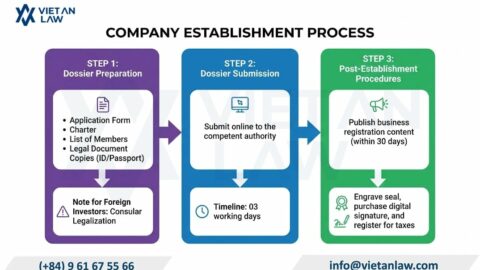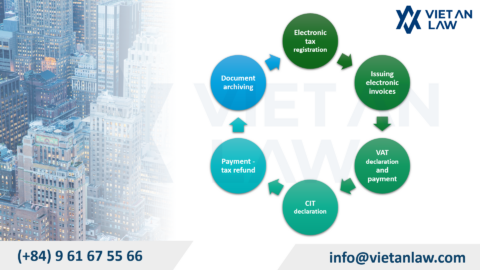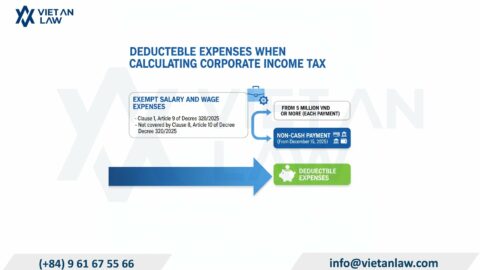In the process of production and business activities, the use of loans is a common thing for many businesses, especially when it is necessary to scale up or invest in long-term assets. Interest costs arising from these loans not only directly affect business results but are also an important factor that needs to be accounted for in accordance with the provisions of law and accounting standards. However, many businesses still face difficulties in determining the time of recognition, how to classify and account for interest expenses in a reasonable and accurate way. Viet An Tax Agent will specifically present how to account for the company’s interest expenses according to current regulations, and analyze some important notes to ensure legal compliance and financial transparency.
Table of contents
Interest expense is a financial expense incurred when an enterprise or individual borrows capital from credit institutions, banks or other individuals for production and business activities or other financial purposes, and must pay interest on such loan. This is an important factor in the financial cost structure, directly affecting after-tax profits and corporate income tax obligations if eligible to be included in reasonable expenses in accordance with the law.
According to Clause 3, Article 113 of Circular 200/2014/TT-BC, interest expense is determined as interest expense incurred in the period and reflected in the financial expense section of the financial statements. The data to record this indicator is taken from the Detailed Accounting Book of Account 635 – Financial Expenses. Interest expense is recorded as the amount of interest incurred in the accounting period, not necessarily the amount of interest paid in the period.
Interest expense items include:
The accounting of interest expenses in accordance with regulations not only helps businesses honestly reflect the financial situation, but also ensures compliance with tax and accounting laws.
Interest expense is a type of financial expense of a recurring nature, arising from the use of loan capital by enterprises, and is subject to strict regulation by law related to interest rates, capital use purposes as well as tax deduction conditions. Here are some of the prominent characteristics of interest expense
Interest expense is a financial expense incurred when an enterprise uses loans from credit institutions or individuals to serve production and business activities. Accurately accounting interest expenses not only helps businesses manage effectively, but also ensures compliance with tax laws.
Interest expense is considered reasonable and deductible when calculating corporate income tax (CIT) if the following conditions are fully met:
When reasonable interest expenses are incurred, enterprises shall account as follows:
In case of periodic interest payment:
A/C 635 – Financial costs
Cr 111, 112 – Cash/ Bank deposits
In case of prepayment of loan interest for multiple periods
When paying interest:
Dr 242 – Prepaid expenses
Cr 111, 112 – Deposits, Bank deposits
When allocating interest expenses to each accounting period:
A/C 635 – Financial costs
Cr 242 – Prepaid expenses
Capitalization of interest expense
Interest expense capitalization is the process of recording the interest expense incurred in the process of investment in construction or production of unfinished assets into the historical cost of that asset. According to Vietnam Accounting Standard No. 16 – Borrowing expenses, interest expenses are capitalized when the following conditions are satisfied at the same time:
When incurring interest expenses eligible for capitalization, the accountant shall account them as follows.
For construction investment activities
Dr 241 – Unfinished capital construction
Cr 111, 112 – Cash or Bank Deposit
Cr 335 – Expenses payable (in case of interest paid later)
For unfinished property production activities
Dr 627 – General production costs
Cr 111, 112 – Cash or Bank Deposit
Cr 335 – Expenses payable (in case of interest paid later)
The capitalization of interest expense will end when the business completes the necessary activities to put the asset into use or is ready for sale. Loan interests incurred after this time will not be capitalized but must be recorded in production and business expenses in the period.
Unreasonable interest expenses are expenses that cannot be deducted when determining income subject to corporate income tax. Common cases include:
Although they are not included in reasonable expenses when tax finalization, accountants still have to record these interest expenses in accounting books as follows:
A/C 635 – Financial costs
Cr 111, 112 – Cash or Bank Deposit
When determining CIT taxable income, enterprises need to exclude the unreasonable interest expenses mentioned above to ensure compliance with the provisions of tax law.
If you have any difficulties or questions related to how to account interest expenses, please contact Viet An Tax Agent for the most specific advice.




